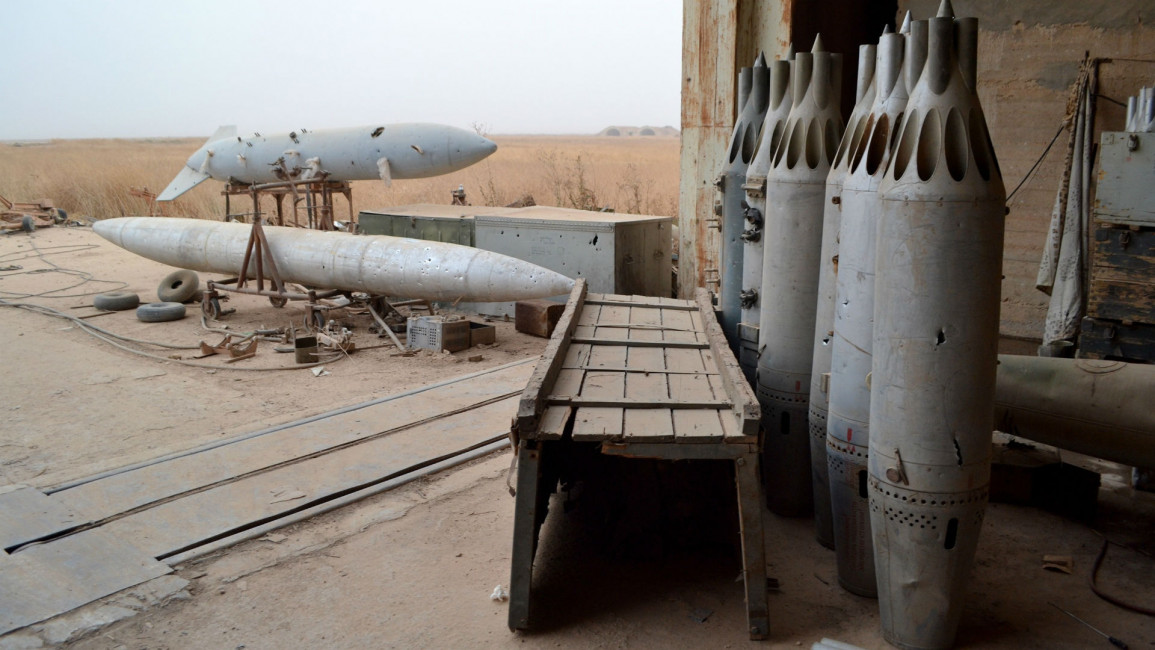Russia lets UN probe into Syria chemical attacks start
Russia has lifted its objections to a UN investigation into chemical attacks in Syria, clearing the way for the probe to begin, diplomats said on Thursday.
The UN Security Council unanimously adopted a resolution on 7 August approving a joint investigation by the United Nations and the Organisation for the Prohibition of Chemical Weapons.
UN Secretary General Ban Ki-moon followed up by proposing that the mission be entrusted to three independent experts, and asked the Security Council for the go ahead to recruit them.
But Russia, which heads the council in September, delayed its response.
| Russians wanted investigators to look into the use of chemical weapons by the IS, but that would require a new resolution |
According to diplomats, Moscow wanted guarantees on several points, notably that the sovereignty of its Syrian ally would be respected, and on the mission's financing.
On Wednesday, Ban addressed a letter to Russian ambassador Vitaly Churkin giving assurances that the UN would "expeditiously consult" with Damascus on an agreement governing how the mission will function, and that there would be "reasonable grounds" for its demands for access.
The Syrian government is supposed to cooperate fully with the investigators.
In a statement Thursday, Ban said he would "without delay, undertake all steps, measures and arrangements necessary for the speedy establishment and full functioning of the (joint investigative mechanism)."
He did not say when the investigation would begin, but called "on all parties in the Syrian Arab Republic to cooperate fully."
The Russians also wanted the investigators to weigh in on the use of chemical weapons in Iraq by Islamic State group (IS) fighters. But that would require a new resolution and the agreement of the Iraqi government.
The IS is suspected of having attacked Kurdish fighters with sarin gas last month in Iraq and in northern Syria.
The US, UK and France accuse the Syrian army of carrying out chemical attacks, including several with chlorine gas.
Russia, which has always protected its Syrian ally with its permanent, veto-wielding seat on the Security Council, contends there is no proof against Syria.
Investigators will be charged with determining who is responsible for the attacks, which could lead to their being sanctioned by the Security Council. But any such sanctions would require a new resolution, which Russia could veto.
Russia defends its aid to Syria
Moscow dismissed criticism of its military aid to embattled President Bashar al-Assad by Western states, which are carrying out air strikes on IS targets in both Syria and neighbouring Iraq, but also support Assad's ouster.
"We helped, are continuing to help and will help the Syrian government when it comes to supplying the Syrian army with everything it needs," said Russian Foreign Minister Sergei Lavrov.
IS fighters edged closer to a strategic airbase outside the eastern city of Deir ez-Zor in heavy clashes that left 54 combatants dead, said the Syrian Observatory for Human Rights.
The Sunni Muslim group, which has captured large chunks of Syria and Iraq, seized control of an army post near the base on Wednesday night.
IS already controls most of oil-rich Deir Ezzor province, including about half of its capital, and has fought for more than a year to capture the airport and the rest of the city.
Three air bases left in North and East Syria
| At least 56 soldiers were killed, some execution-style, as rebels captured Idlib's Abu Duhur military airport |
The Deir ez-Zor assault came as rival jihadists from Al-Qaeda's Syrian affiliate and their allies on Wednesday seized the last regime-held military base in the northwestern province of Idlib.
According to the observatory, the regime is now left with just three airbases in the east and north - Deir ez-Zor, and Neirab and Kweyris in Aleppo province.
At least 56 soldiers were killed, some execution-style, as rebels captured Idlib's Abu Duhour military airport under the cover of an intense sandstorm following a two-year battle, the Observatory said.
The observatory’s Rami Abdel Rahman said the entire province of Idlib was now under the control of the Nusra Front and other rebel groups.
Assad's regime appeared to admit the loss, with state television saying troops had left the base.
It has been at war with different rebel groups since March 2011, in a conflict that has killed at least 240,000 people and forced millions to flee abroad.
Russia denied it was ramping up its military presence in Syria, saying it was supplying its ally with humanitarian aid and military equipment under existing contracts.
"Russian planes are sending to Syria both military equipment in accordance with current contracts and humanitarian aid," Lavrov told reporters in Moscow.
"We have never made our military presence (in Syria) a secret," he said. "Russia is not taking any additional steps."
US officials said this week that Russia was solidifying its foothold in Syria, sending ships, armoured personnel carriers and marines.
French Foreign Minister Laurent Fabius said he was "concerned" by US reports of a Russian military build up, and reiterated that there could only be a political solution to Syria's conflict.
Lavrov rubbished suggestions that Russia's greater involvement in Syria would throw a wrench in the plans of the Western coalition's fight against the IS.
"This logic is incomprehensible to me," Russia's top diplomat said. "The Syrian army is the most effective force that can stand up to the terror threat on the ground."



